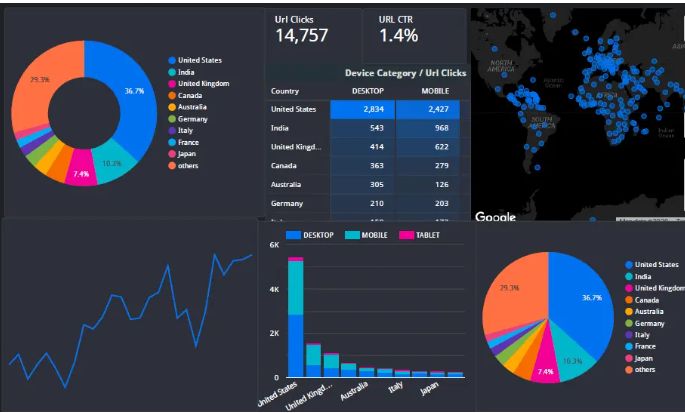Data Analysis | SQL,Tableau,Power BI & Excel | Real Projects

About Course
In this course, you will learn how to master the key techniques and concepts required to extract, manipulate, visualize, and analyze data effectively. Whether you’re a beginner or have some experience with data analysis, this course will cater to your needs and help you gain a competitive edge in the rapidly growing field of data analytics.
Here’s what you can expect to learn:
-
SQL Fundamentals: Dive into the world of structured query language (SQL) and learn how to write powerful queries to extract and manipulate data from databases. From basic SELECT statements to advanced JOINs, subqueries and aggregate functions, you’ll gain a comprehensive understanding of SQL. This section is available for Mac and Windows laptops and computers.
-
Tableau Fundamentals: Unleash the potential of Tableau, a leading data visualization and exploration tool. Learn how to connect to data sources, create stunning visualizations using drag-and-drop techniques, and build interactive dashboards to uncover valuable insights. This section is available for Mac and Windows laptops and computers.
-
Power BI Essentials: Explore the capabilities of Power BI, Microsoft’s powerful business intelligence tool. Discover how to import, transform, and model data from various sources, create interactive visualizations, and design compelling reports and dashboards. This section is only available for Windows users.
-
Excel for Data Analysis: Excel remains a fundamental tool for data analysis, and in this course, you’ll harness its power. Explore common features used by data analysts such as formulas, pivot tables, data cleaning, and conditional formatting to efficiently analyze and present data. This section is available for Mac and Windows laptops and computers.
-
Using ChatGPT as a Data Analyst: Learn how to use ChatGPT to enhance your productivity as a data analyst. Discover practical techniques for utilizing ChatGPT to assist in writing SQL queries, generating code snippets, and automating repetitive tasks.
-
Statistics for Data Analysis: Develop a strong foundation in statistical concepts essential for data analysis. Learn about key measures such as standard deviation, mean, median, and mode. Understand how to interpret these statistics and apply them to real-world data analysis scenarios.
Course Content
Introduction
-
EXAMINATION
SQL
Introduction to Statistics for Data Analysis
Excel with Netflix Dataset
Power Bl Dashboard: Netflix – Windows Users only
Classic Models Data Analysis Exercises
Using ChatGPT as Your SQL Coding Assistant
Power Bl Dashboard: Classic Models – Windows Users only
Electric Vehicle Dashboard with Tableau
Bike Sales Dashboard with Tableau
Congratulations and Thank You!
Student Ratings & Reviews
